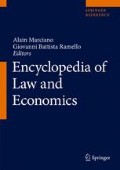Abstract
Equilibrium is a key concept of modern science, from classical mechanics to biology, so that its importance for economics should not be a surprise. More surprising is perhaps its central role in the tentative transition of economics from an essentially institutional set of disciplines to a unified branch of modern science, based on a rigorously axiomatic system. The main attempt for such a transition, which has as protagonists several Nobel prizes, was consumed in the 1950s, in an atmosphere first of elation and then of disillusion that appears very similar to that experienced 20 years earlier by mathematicians because of the failure of the Hilbert unification program. In spite of the somewhat spectacular nature of both successes and failures of its mathematical theory, however, general equilibrium has a central role in the history of modern economics that goes much beyond its formal treatment. This role is inextricably related to the notion of the market and is perhaps the primary constituents of the eclectic nature and vitality of contemporary economics.
Access this chapter
Tax calculation will be finalised at checkout
Purchases are for personal use only
References
Arrow KJ (1951) An extension of the basic theorems of classical welfare economics. In: Neyman J (ed.), Proceedings of the second Berkeley symposium on mathematical statistics and probability. University of California Press, Berkeley
Arrow KJ, Debreu G (1954) Existence of an equilibrium for a competitive economy. Econometrica 22(3):265–290. https://doi.org/10.2307/1907353. https://doi.org/10.2307%2 F1907353
Bergson A (1938) A reformulation of certain aspects of welfare economics. Q J Econ 310–334
Cantillon R (1755) Essai sur La Nature de Commerce en Géneral (ed: Hibbs H). Macmillan, London, 1931
Colander D (1995) Marshallian general equilibrium analysis. East Econ J 21(3)
Debreu G (1951) The coefficient of resource utilization. Econometrica 19(3):273–292
Debreu G (1974) Excess-demand functions. J Math Econ 1:15–21. https://doi.org/10.1016/0304-4068(74)90032-9. https://doi.org/10.1016%2 F0304-4068%2874%2990032-9
Devarajan S, Go D, Lewis J, Robinson S, Sinko P (1997) Simple general equilibrium modeling. In: Francois J, Reinert K (eds) Applied methods for trade policy analysis. Cambridge University Press, Cambridge, UK
Kirzner IM (1973) Discovery capitalism and distributive justice (Oxford 1989)
Mantel R (1974) On the characterization of aggregate excess-demand. J Econ Theor 7:348–353. https://doi.org/10.1016/0022-0531(74)90100-8. https://doi.org/10.1016%2 F0022-0531%2874%2990100-8
McKenzie LW (1959) On the existence of general equilibrium for a competitive economy. Econometrica 27(1):54–71. JSTOR 1907777
Nash JF Jr (1950) Equilibrium points in n-person games. Proc Natl Acad Sci U S A 36:48–49
Nash JF Jr (1951) Non-cooperative games. Ann Math 54:286–295
Norton R, Scandizzo PL (1981) General equilibrium computations in activity analysis models. Oper Res 29(2):243–262
Pareto V (1909) Manual of political economy (Trans: Kelley AM). New York 1971
Ricardo D (1821) On the principles of political economy an taxation, 3rd edn (ed 1821). John Murray, London
Robinson J (1962) Economic philosophy. Transaction Publisher
Scarf HE, Hansen T (1973) The computation of economic equilibria, vol 24, Cowles Foundation for Research in economics at Yale University, Monograph. Yale University Press, New Haven/London
Sonnenschein H (1972) Market excess-demand functions. Econometrica (The Econometric Society) 40(3): 549–563. https://doi.org/10.2307/1913184. https://doi.org/10.2307%2 F1913184. JSTOR 1913184
Sonnenschein H (1973) Do Walras’ identity and continuity characterize the class of community excess-demand functions? J Econ Theor 6:345–354. https://doi.org/10.1016/0022-0531(73)90066-5. https://doi.org/10.1016%2 F0022-0531%2873%2990066-5
Stone R, Brown A (1962) A computable model for economic growth. Cambridge Growth Project, Cambridge, UK
Veblen T (1904) The theory of business enterprise. Scribner New York
Walbroeck JL, Ginsburg VA (1981) Activity analysis and general equilibrium modelling. North Holland Publishing, Amsterdam, Webley, O. 1986
Walras L (1954) Éléments d’économic politique pure, elements of pure economics (trans: William Jaffé from the 1926 ed). Richard D. Irwin, Homewood
Warlas L (1877b) Éléments d’économic politique pure, 2nd part Ist ed. L.Cobraz, Lausanne
Wicksteed PH (1914) The scope and method of political economy in the light of the “marginal” theory of value and of distribution. Econ J 1–23
Author information
Authors and Affiliations
Corresponding author
Editor information
Editors and Affiliations
Rights and permissions
Copyright information
© 2019 Springer Science+Business Media, LLC, part of Springer Nature
About this entry
Cite this entry
Scandizzo, P.L. (2019). Equilibrium Theory. In: Marciano, A., Ramello, G.B. (eds) Encyclopedia of Law and Economics. Springer, New York, NY. https://doi.org/10.1007/978-1-4614-7753-2_35
Download citation
DOI: https://doi.org/10.1007/978-1-4614-7753-2_35
Published:
Publisher Name: Springer, New York, NY
Print ISBN: 978-1-4614-7752-5
Online ISBN: 978-1-4614-7753-2
eBook Packages: Economics and FinanceReference Module Humanities and Social SciencesReference Module Business, Economics and Social Sciences

